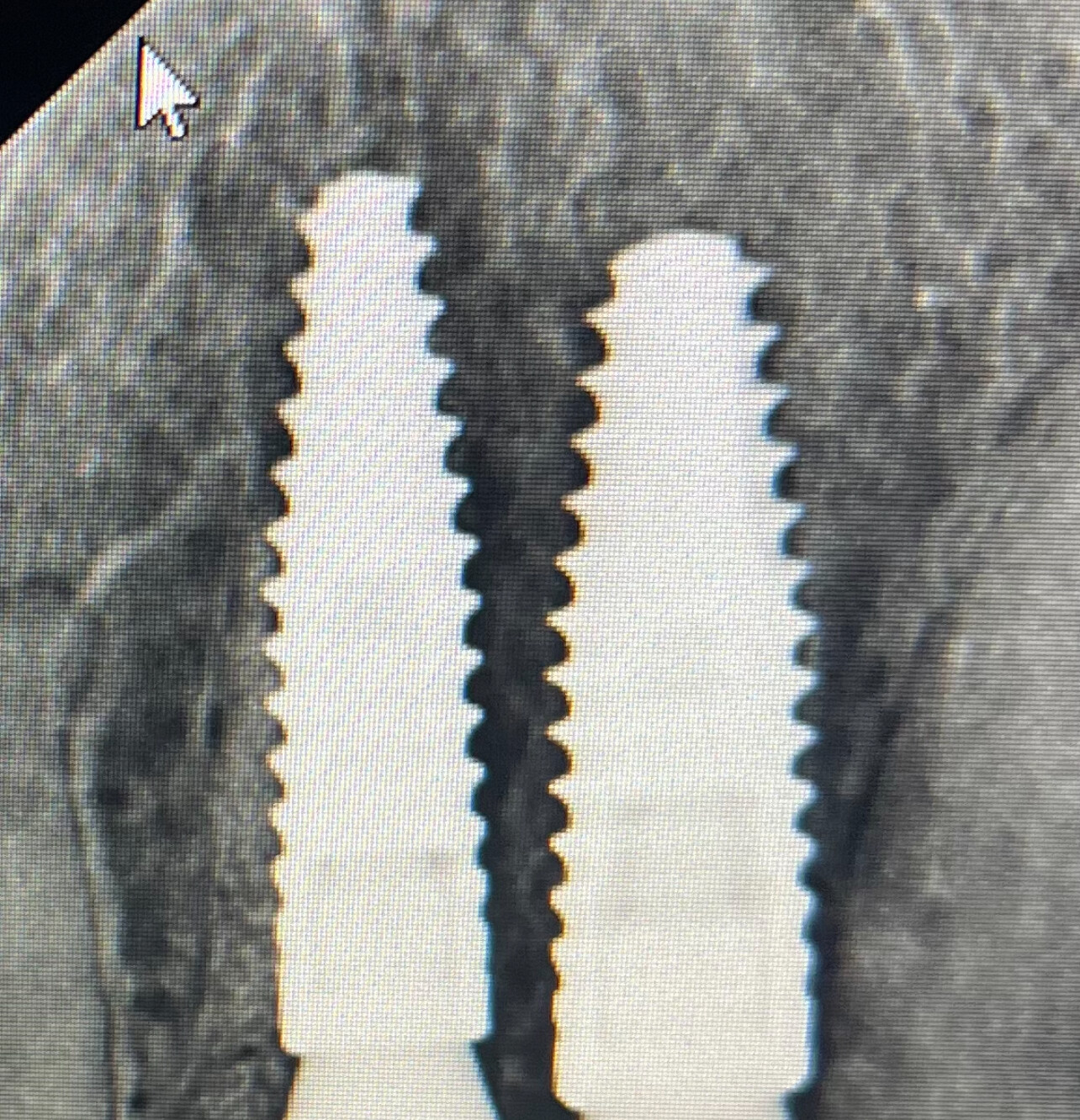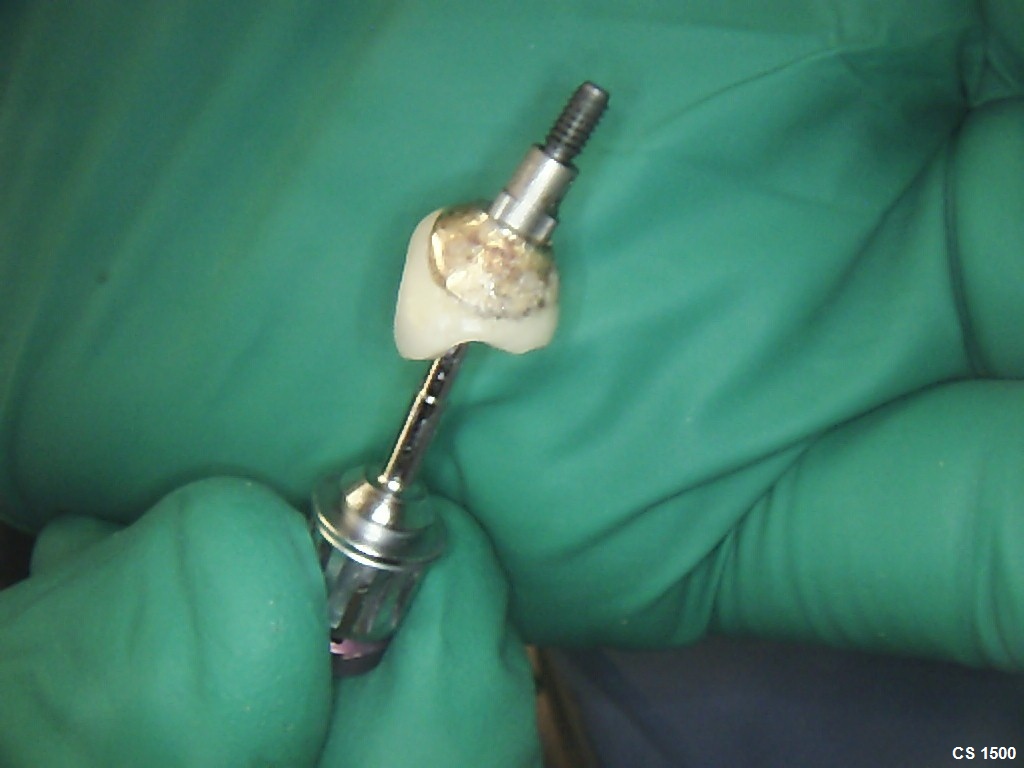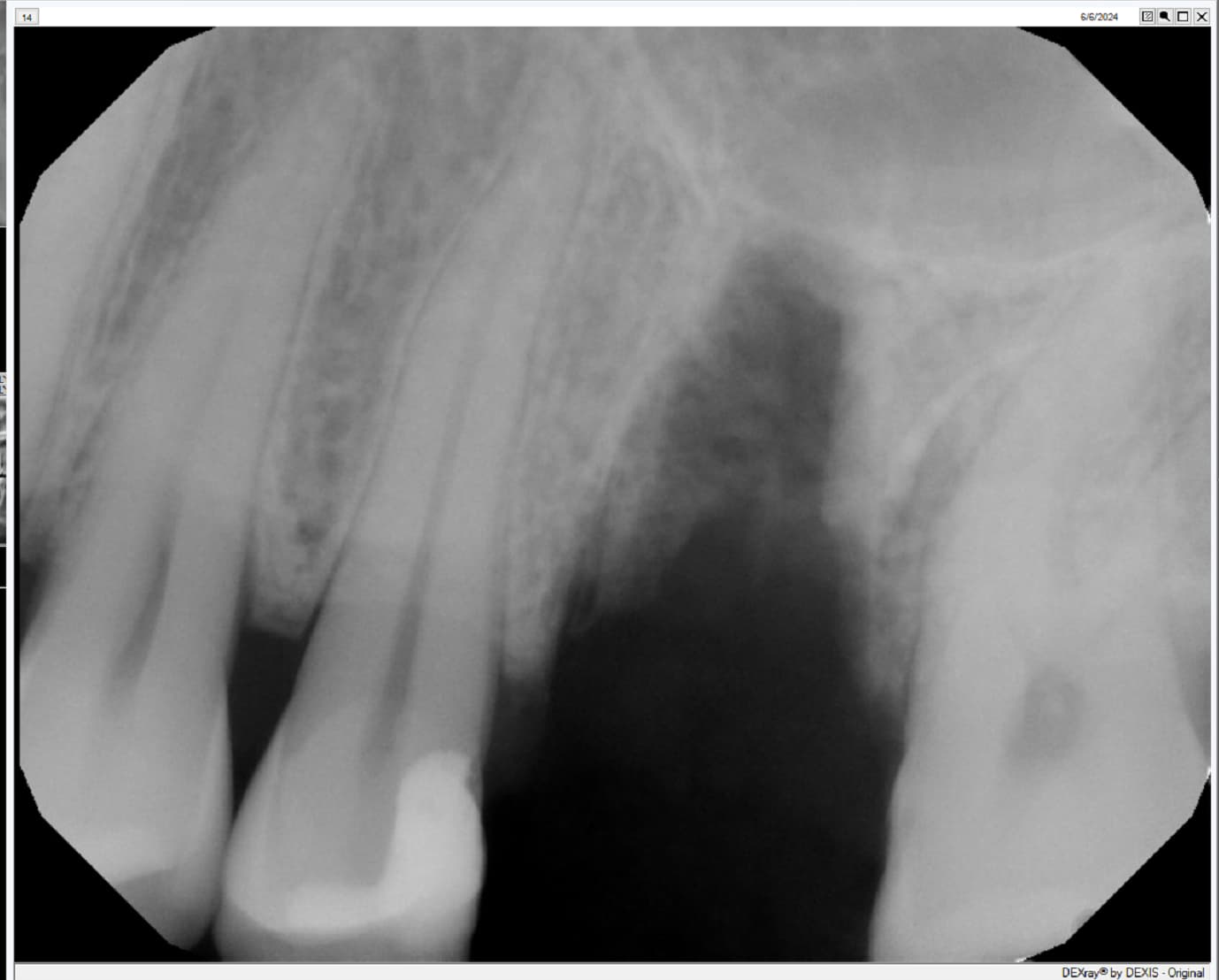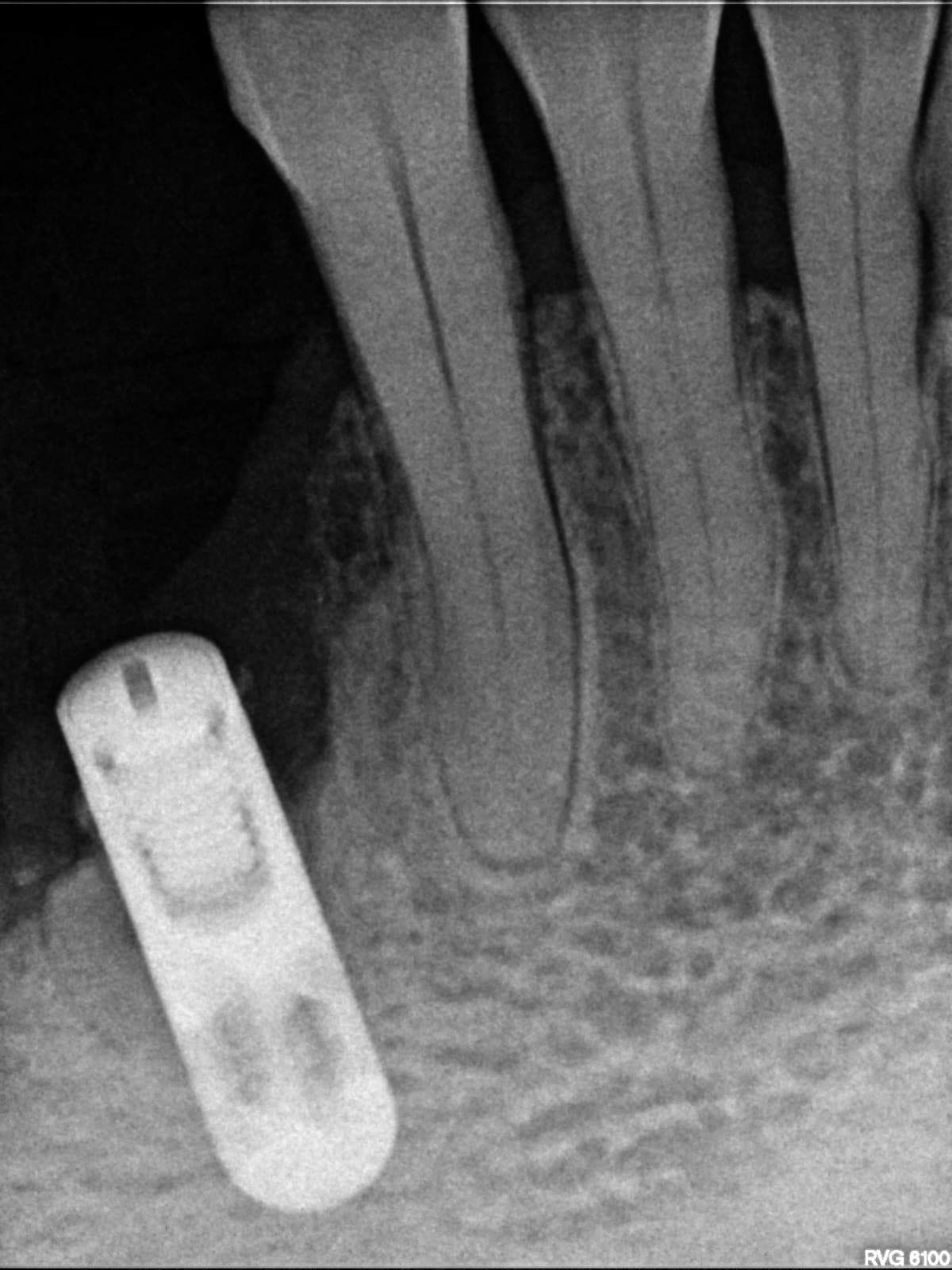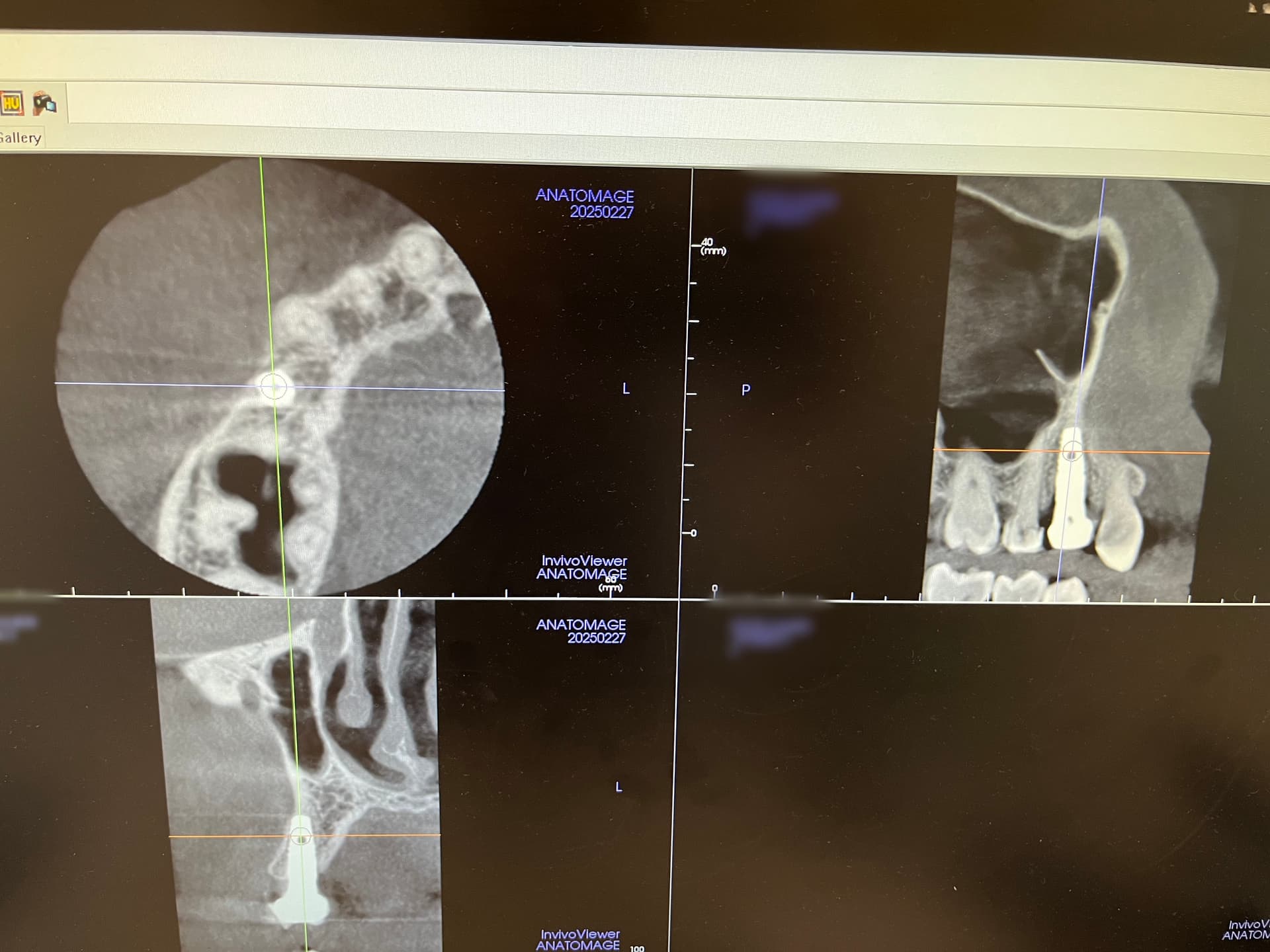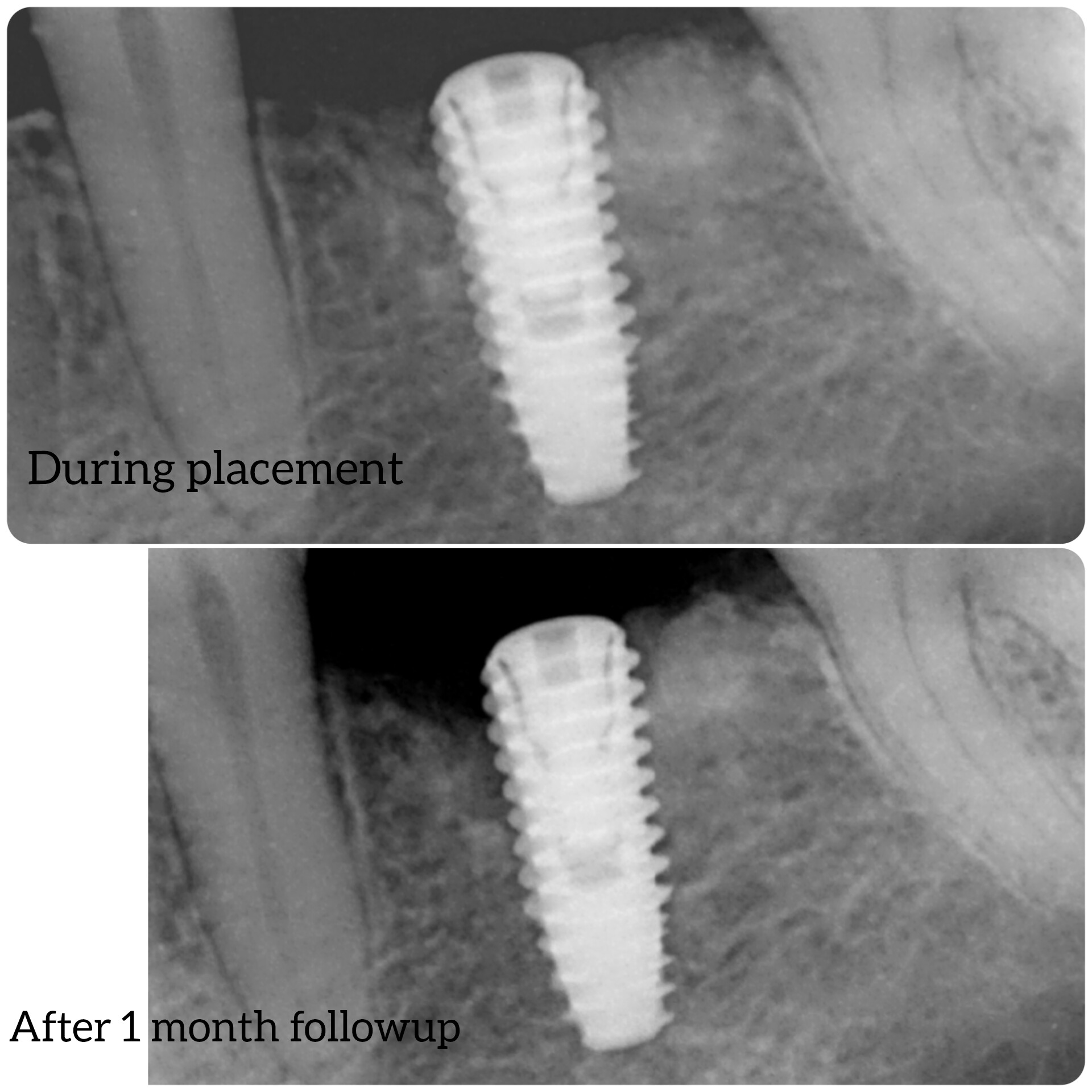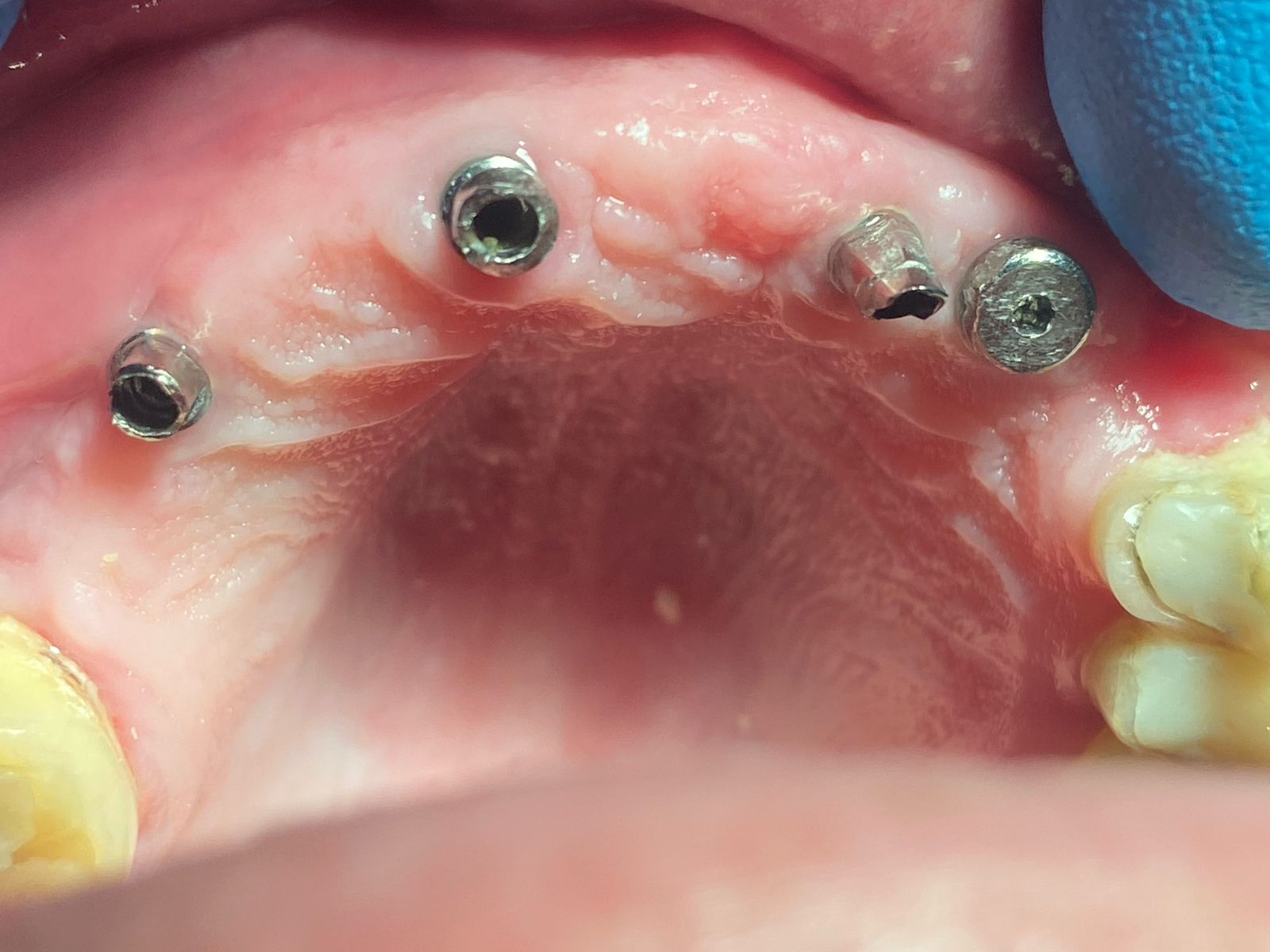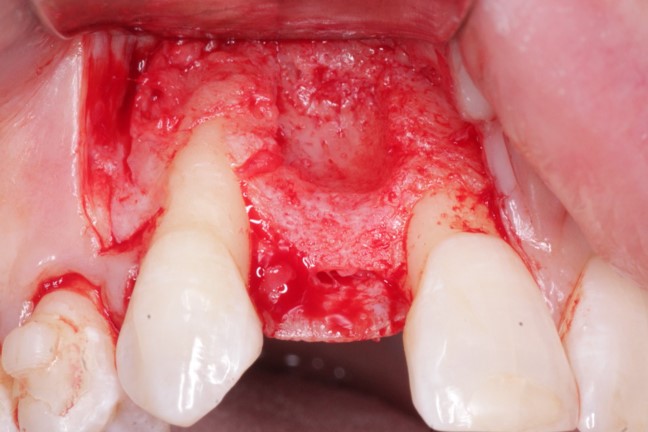Use of Chlorhexidine to Prevent Infection: Negative or Positive?
Anon. asks:
About a month ago I had asked a question on the use of Chlorhexidine preoperatively, during and after surgery to prevent infection and to promote faster healing. I have been using 0.12% chlorhexidine in alcohol base preoperatively during surgery and postoperatively with excellent results for the last 15 years. Chlorhexidine is an established gold standard as an antimicrobial agent. However because of one in vitro study that shows toxicity to fibrocytes, the use of this excellent antimicrobial agent has been unnecessarily curtailed. I would like to know from other dentists placing implants of their experience with the use of chlorhexidine, and whether it is negative or positive when used during surgery?
16 Comments on Use of Chlorhexidine to Prevent Infection: Negative or Positive?
New comments are currently closed for this post.
PerioDoc
7/7/2009
Chlorehexidine rocks!!
Joseph Kim, DDS
7/7/2009
We love chlorhexidine preoperatively, and postoperatively have the patient wait 1 day prior to using bid.
Dennis
7/7/2009
I have never used chlorhexidine preoperatively for implant placement. I used to use it post operatively with a direct Q-tip application to help prevent staining in the esthetic zone. I had the patients use it bid for the life of the implant. However, when the efficacy was challenged, I stopped using it and have found there was no difference in outcome, although anecdotal. I do use oral antibiotics post op for 5 days.
Dr. Kali
7/7/2009
To Dr. Kim:
What is the clinical justification to hold the CHX application for one day after operation?
To Anon:
Could you provide a linker to the paper?
There are many in vitro and in vivo studies regarding the toxicity of CHX. What is special about THIS paper?
To Dennis:
What is the current clinical expectation for prophylactic measures, such as CHX? From statistic point view, I guess it is the time to pool our results together.
Dr. Ufuk Tosun, MScD in D
7/8/2009
I would suggest to dental profesionals Chlorhexidine Pump Spray operative use(0.50%, High concentation chlorhexidine).I would prescribe antibiotic post operatively if needed (particularly with patients whom use immunosupressive medicine,some others with diabetic history). I also ask them to rinse gently with chilled saline solution after eating. This continues 3-4 some cases even 5-6 days after surgery till soft tissue closure, healing. Than they go back to routine - 0.05% Chlorhexidine Rinse ADS 205 contains not only 0.05% Chlorhexidine but also 0.05% Sodium Fluoride (Curasept Mouthwash).
This provides long term combined protection. In the low concentrations fluoride and chlorhexidine can be combined together to provide a powerful prophylactic mouthwash.With Curasept ADS (antidiscolouration system), we finally have a chlorhexidine based mouthwash without any of the side effects.
In addition to this all curasept mouthwashes are alcohol free.
Don Callan
7/8/2009
Chlorhexidine will delay the healing. A good rule of thumb is "if the product can be placed in the eye without a problem, then it can be used in the mouth after surgery". Pour Chlorhexidine in the eye-- you and the cells will not like it. Chlorhexidine is good for a pre-surgical rinse. Water works very well after surgery when brushing the teeth until the surgical site has epithelialized. No general or plastic surgeon will use any toxic product to clean the post surgery site.
steve c
7/8/2009
As a periodontist I've seen thousands of surgical recoveries over the years and I feel chlorhexidine used post-op results in better healing although not necessarily faster. Tissues appear less inflammed using 0.12% CHX post surgically compared to cases where it is not used.
I'm a big proponent of CHX use before, during and for 2 weeks after surgery.
Don Callan
7/8/2009
As a periodontist I too have seen thousands of surgical recoveries over the years and I feel chlorhexidine does slow the healing. That is why chlorhexidine is made--some use it some do not.
Dr. Kali
7/8/2009
Clinically, which one is a better result:
healing with inflammation or healing without inflammation?
We know that inflammation is part of the healing process and CHX may inhibit this step.
Are there any other alternatives to control negative-inflammation?
Regarding the side effects of CHX products, including Curasept, we need clinical evidences.
Dr Porus
7/10/2009
Dr Kali wanted to know which study i was reffering to. The following is the study:
1988: Sanchez I R; Swaim S F; Nusbaum K E; Hale A S; Henderson R A; McGuire J A
Effects of chlorhexidine diacetate and povidone-iodine on wound healing in dogs.
Veterinary surgery : VS : the official journal of the American College of Veterinary Surgeons 1988;17(6):291-5.
odo perio
7/10/2009
i practice periodontology for 7 years and i never suggest use of chx not even after placement of im plants, but pure chamomile rinse, with excellent results concerning healing, thinking only that microbiota in the area is normal for this area-the mouth, there is no reason to achieve better healing than a doctor would achieve if i have a surgery in my vegina, or after suturing after birth delivery,or in my skin, where there is a plenty of normal for the area micribiota.there is no reason to be so much afraid of the normal for the area bacterria, they will live there no matter what u do.with a problem in patient's history- diabetes HIV Plasmatocyttarosis leukemia etc i would consider chx
I am not omoiopathetic dentist, i just taste whatever i may suggest like my teachers havedone to us at dental school- we had to try put to each other flexy dum etc.
i had my 38 removed with surgery and for better taste or smell i used chamomille rinse to myself with excellent results.
dont be afraid of microbia, we are too
Dr. Ben Eby
7/14/2009
THE USE OF CHLORHEXIDINE:
Chlorhexidine is a wonderful antimicrobial and is great for pre operative oral cleansing and post operative cleansing-------
Everyone agrees:
The only problem with it is when the surgical site does not have complete primary closure.
Post operatively, after suture removal and with primary closure, it is great. If you have exposed bone, from a block graft, etc.... and are looking for primary closure, any chemical that is toxic to bacterial cell will retard the healing process and cause slower closure, or no closure at all. I refer back to the day when my mentor Don Callan said, don't even use toothpaste...No Chemicals!
Give your patients saline to rinse with until you have primary closure.....Then Chlorhexidine is great!
DrMatPap
7/20/2009
Does Curasept contain 0.05% chlorhexidine and 0.05% sodium fluoride? If yes this is a "strange" not active formula.Why? Because chlorhexidine is a cationic agent and fluoride an anionic that means fluoride destruct the action of chlorhexidine!
Jess
8/5/2009
I am doing research into CHX on wound healing
1. Infection stops wound healing
2. One in vitro study of chlorhexidine on cell cultures does not equate to clinical resuls
3. Multiple large studies on periodontal regeneration (Tonetti's group) use Chlorhexidine 0.2% for 6 weeks and they get the best (and most predictable) results world wide.
4. Curasept is not the original formula of chlorhexidine and Arwheiler et al found it isn't as effective at preventing plaque formation.
Current research suggests the most favourable wound healing outcomes occur when the original chlorhexidine formula is used 0.2% BD
- As an alternate to rinsing, look at the paper by Heitz et al 2004 (Journal of Clinical Periodontology)
Jmoschella
4/4/2018
I have used chlorhexidine after tooth extraction for 30 days and lost all my taste and smell, why.
RN Contributor
10/23/2020
Common side effects of Chlorhexidine mouthwash can include:
tooth/tongue staining,
increased tartar,
mouth/throat irritation,
dry mouth,
unusual or unpleasant taste in your mouth,
decreased taste sensation,
tongue swelling,
gingivitis, or mounth sores.
Your sense of smell MAY come back over time.










